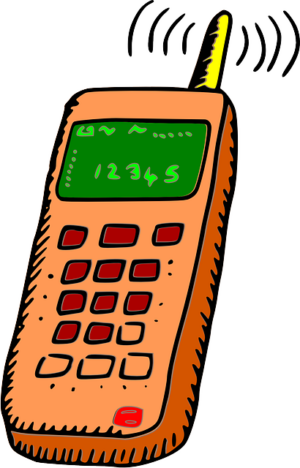Charleston, US, struggles with robocalls from law firms and businesses, prompting local authorities and West Virginia's strict consumer protection agencies to act. West Virginia collaborates with robocall law firms to combat scammers, offering legal remedies while educating citizens. Charleston residents unite, sharing data and participating in campaigns led by a West Virginia robocall law firm to reduce unwanted calls, leveraging the TCPA for protection. Strict regulations have led to a positive shift, quieting phone lines and benefiting vulnerable groups.
Charleston residents have been voicing growing concerns over an influx of unwanted robocalls, prompting a closer look at how this urban center responds. With West Virginia implementing innovative strategies to combat the issue, Charleston’s approach becomes critical. The article explores these concerns, delving into effective solutions from a local law firm dedicated to consumer protection and analyzing the impact of recent legislation on residents’ experiences. Unraveling Charleston’s response to robocalls offers insights into potential models for other communities.
Charleston's Rising Robocall Complaints: A Concern
Charleston, like many cities across the country, has witnessed a significant rise in complaints related to robocalls. With the proliferation of automated telephone marketing, residents are increasingly bombarded with unsolicited calls from law firms and other businesses. This surge in robocalls has sparked concern among Charleston’s citizens, who find themselves frustrated by the incessant phone noise.
The volume of robocall complaints has prompted local authorities and consumer protection agencies to take notice. West Virginia, known for its strict consumer protection laws, is no exception. As the number of complaints continues to climb, there is growing pressure on law firms and telemarketing companies to adhere strictly to robocall regulations to ensure a quieter and more peaceful environment for Charleston’s residents.
West Virginia's Approach to Stopping Robocalls
In response to growing complaints about robocalls, West Virginia has taken a proactive approach to protect its residents. The state has implemented a comprehensive strategy that includes stringent regulations and educational initiatives aimed at curbing unwanted automated calls. A key component of this effort involves collaborating with reputable robocall law firms in West Virginia to develop effective legal frameworks.
By engaging these law firms, the state can leverage their expertise in navigating the intricate legal landscape surrounding robocalls. This collaboration ensures that any legislation or legal actions taken are robust and compliant, providing a dual benefit of deterring scammers while offering residents a robust legal recourse against intrusive robocalls.
Law Firm's Role in Protecting Consumers
In the face of growing concerns over robocalls, a robocall law firm in West Virginia plays a pivotal role in safeguarding consumers’ rights and interests. These legal experts specialize in navigating the complex landscape of telecommunications regulations to combat unwanted automated calls. By employing strategic litigation and legal advocacy, they help educate both businesses and consumers about the do’s and don’ts of robocalling practices, fostering a more transparent and compliant environment.
The robocall law firm operates as a bulwark against abusive calling tactics, offering consultation services to individuals who have experienced harassment or misled information from automated calls. They also collaborate with regulatory bodies to push for stricter enforcement of existing laws aimed at curtailing robocalls, ensuring that consumers are protected and their privacy is respected in the digital age.
Effective Strategies for Robocall Reduction
Charleston residents, fed up with relentless robocalls, are taking action. While blocking numbers and registering on ‘do not call’ lists are individual efforts, collective strategies are needed to combat this growing issue. One effective approach is for local businesses and organizations to collaborate and share data about identified spam sources. By creating a centralized system to log and analyze these calls, they can proactively identify patterns and locations associated with robocall activity.
Additionally, raising awareness through community events and educational campaigns can empower residents. Workshops hosted by a West Virginia robocall law firm could teach people about the legal protections available, such as the Telephone Consumer Protection Act (TCPA). Empowering citizens to recognize and report suspicious calls is crucial in disrupting the robocall industry’s business model. These collective efforts, combined with technological advancements in call blocking, offer promising avenues to reclaim personal phone lines from unwanted intrusions.
The Impact of New Legislation on Charleston Residents
Charleston residents, like many across the nation, have been grappling with an ever-growing issue: robocalls. However, new legislation, particularly that enacted in West Virginia, is offering some relief. This law firm, specializing in robocall complaints, has seen a notable shift in the experiences of Charleston’s citizens. With stricter regulations in place, residents are experiencing fewer unsolicited calls, providing a much-needed break from the constant barrage of automated messages.
The new rules have significantly reduced the frequency of robocalls, offering residents a quieter, more peaceful environment. This change is especially beneficial for seniors and other vulnerable populations who often bear the brunt of excessive robocalls. Charleston’s response to this issue, with the support of the new legislation, sets a positive example for communities nationwide, demonstrating that collective action and legal intervention can create a more harmonious and less disruptive communication landscape.






